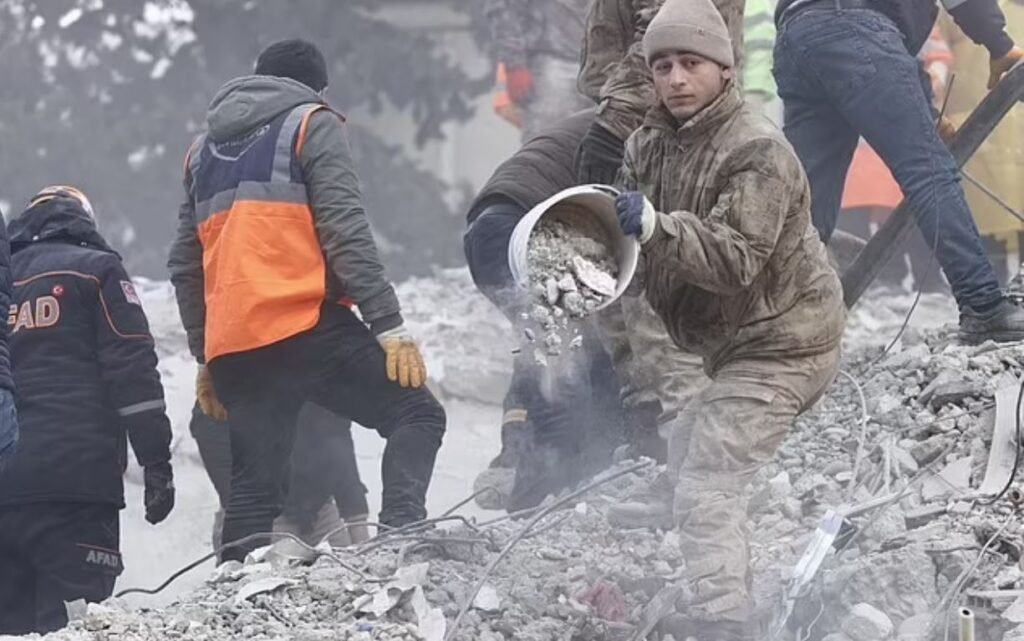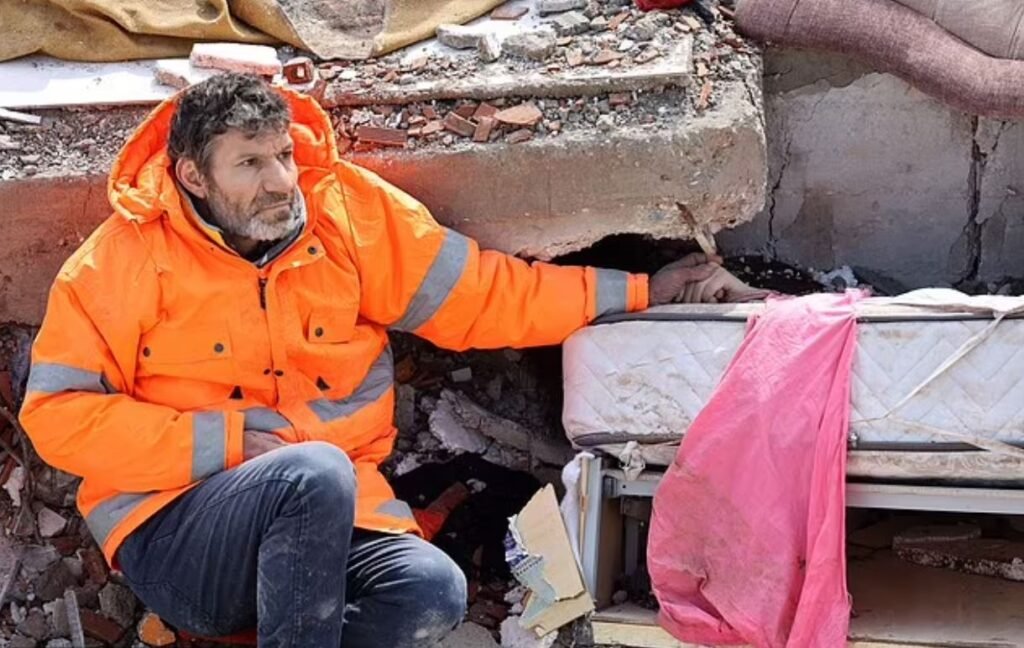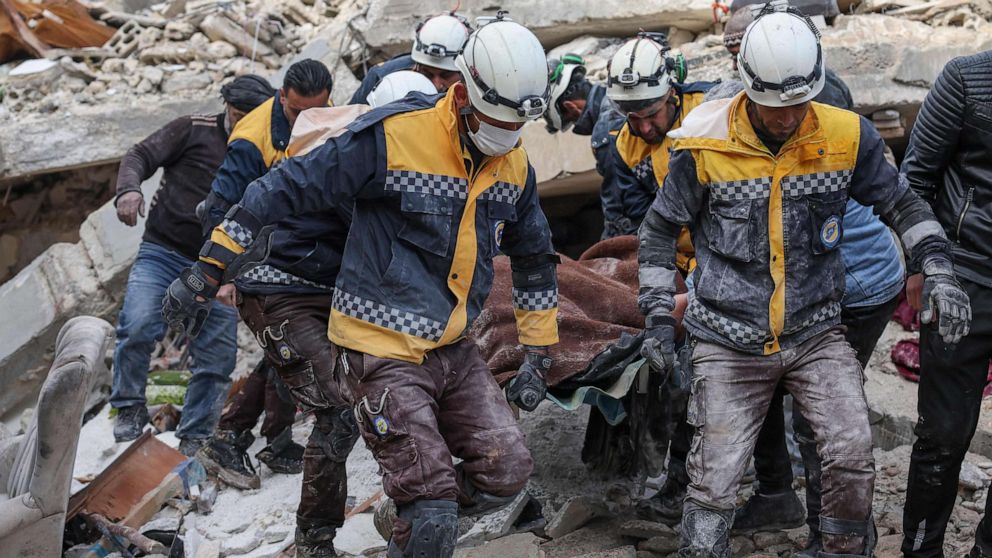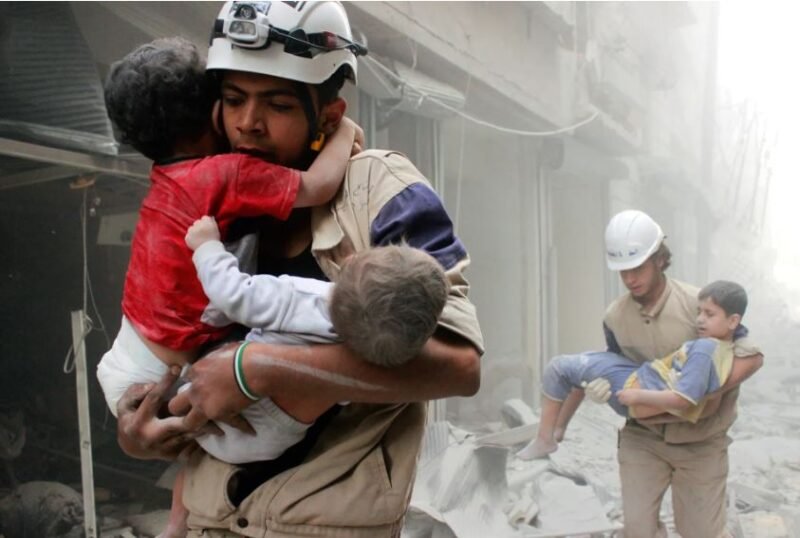what we are discussing
A magnitude 7.8 earthquake that slammed Turkey and Syria on Monday has left more than 21,000 people dead and tens of thousands injured, according to officials.
Teams are rushing to find survivors as humanitarian organizations issue warnings that additional snowfall, together with a lack of water, communications, and power, might result in a fatal “secondary calamity.”

For the first time since the earthquake, a UN assistance convoy was permitted to enter northwest Syria on Thursday. Western sanctions are making it more difficult to provide relief to the nation, and campaigners worry that the regime may prevent aid from reaching victims in areas controlled by the rebels.
Recep Tayyip Erdogan, the president of Turkey, acknowledged that the government’s response to the crisis had “shortcomings,” but he asserted that things were now “under control.”
Days later, in Turkey, survivors are still being rescued: 68 hours after the powerful tremor, a mother and her 6-year-old daughter were rescued from a collapsed home in the Turkish city of Kahramanmaraş.

The woman and kid were discovered in the building’s rubble on Wednesday at 5 a.m. local time, according to German assistance organization @fire and British charity organization SARAID.
In the 78th hour, a family of three—two brothers and their mother—was saved in Pazarcik, Kahramanmaras province. In the 90th hour following the earthquake, a 10-year-old girl was discovered alive in Hatay province. After being saved, milk was the first thing she requested, according to authorities.
The White Helmets of Syria, an organization that provides civil defense, have cautioned that there are fewer survivors still to be found in Syria.

International organizations are working to deliver relief to Syria: According to the foreign ministry, France promised to donate $12.92 million on Thursday to help Syrians affected by the earthquake. The United Nations and humanitarian organizations will oversee the distribution of the relief, which will “engage directly with affected populations in all of the areas struck by the earthquake,” according to the statement.
Direct help to the sanctioned Syrian government has been rejected by several Western countries. The White Helmets will receive an additional 3 million pounds ($3.64 million) in funding from the UK to support rescue and humanitarian efforts in northwest Syria.
The White Helmets are a volunteer group of humanitarian rescuers, and Britain has so far donated a total of 3.8 million pounds ($4.62 million) to them. For humanitarian aid in Turkey and Syria, the United States will contribute $85 million.
The UN is seeking to open up more channels for delivering help to Syria: For the first time since the earthquake, a UN assistance convoy entered northwest Syria on Thursday from Turkey. According to the United Nations Office for the Coordination of Humanitarian Affairs, six trucks delivering non-food items (NFI) and shelter supplies passed via the Bab Al Hawa border crossing.
In addition to the Bab al-Hawa border crossing, which is the sole humanitarian aid route authorized by the UN between Turkey and rebel-held regions of northern Syria, UN Secretary-General António Guterres indicated he is open to the notion of sending supplies through additional border crossings.




